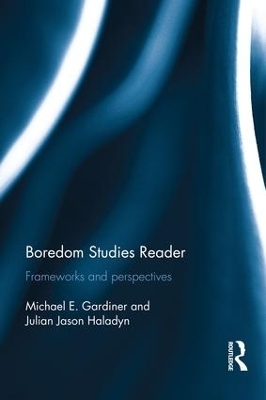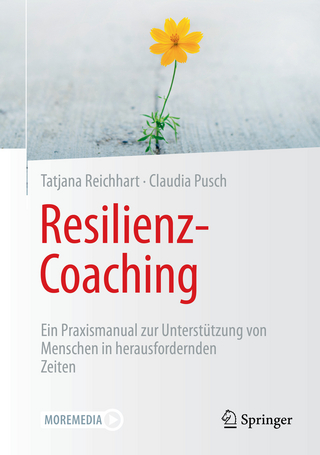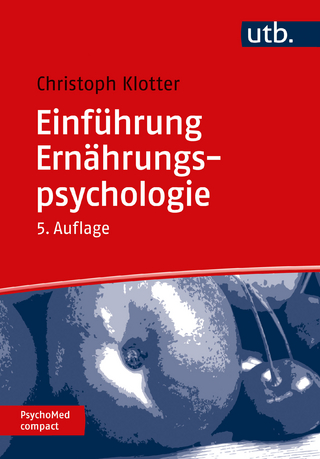
Boredom Studies Reader
Routledge (Verlag)
978-1-138-92746-9 (ISBN)
Michael E. Gardiner is Professor in the Department of Sociology at the University of Western Ontario, Canada, where he is also a core faculty member of the Centre for the Study of Theory and Criticism. He teaches on social theory, everyday life and the sociology of utopia. Julian Jason Haladyn is an art historian and professor at OCAD University. He is the author of Boredom and Art: Passions of the Will to Boredom (Zero Books, 2014) and Marcel Duchamp: Étant donnés (Afterall, 2010), as well as numerous journal articles and book chapters on art and critical theory.
0. Introduction
0.0. ‘Monotonous Splendour: An Introduction to Boredom Studies’, Julian Jason Haladyn and Michael E. Gardiner – p. 1
Part 1: Boredom and Subjectivity
1.1. ‘‘Between Affect and History: The Rhetoric of Modern Boredom’, (Elizabeth S. Goodstein)
1.2. ‘The Dialectic of Lassitude: A Reflexive Investigation’, (Barry Sandywell)
1.3. ‘The Life That is Not Purely One’s Own: Michel Henry and Boredom as an Affect’, (Antonio Calcagno)
Part 2: Boredom and Visual Culture
2.1. ‘Entertainment: Contemporary Art’s Cure for Boredom’, (Frances Colpitt)
2.2. ‘Boring Cool People: Some Cases of British Boredom’, (Elizabeth Legge)
2.3. ‘The Universal Foreground: Ordinary Landscapes and Boring Photographs’, (Eugenie Shinkle)
Part 3: Boredom in/and the [Techno-]Social World
3.1. ‘#Boredom: Technology, Acceleration, and Connected Presence in the Social Media Age’, (Martin Hand)
3.2. ‘Kierkegaard on Boredom and Self-Loss in the Age of Online Dating’, (Kevin Aho)
3.3. ‘Overload, Boredom and the Aesthetics of Texting’, (Sharday Mosurinjohn)
Part 4: Boredom and its Discontents
4.1 ‘Boredom and the Banality of Power’, (Saikat Majumdar)
4.2 ‘Boredom and Violence’, (Jorg Kustermans)
4.3 ‘Everyday Life between Boredom and Fatigue’, (Eran Dorfman)
4.4 ‘Attention and the Cause of Modern Boredom’, (Erik Ringmar)
Part 5: Boredom’s Futures
5.1. ‘Boredom and the Meaning of Life’, (Lars Svendsen)
5.2. ‘Boredom and the Origin of Philosophy’, (Mark Kingwell)
5.3. ‘Postscript: Not Your Father’s Boredom: Ennui in the Age of ‘Generation Meh’, (Michael E. Gardiner)
| Erscheinungsdatum | 24.05.2016 |
|---|---|
| Verlagsort | London |
| Sprache | englisch |
| Maße | 156 x 234 mm |
| Gewicht | 498 g |
| Themenwelt | Geisteswissenschaften ► Psychologie ► Sozialpsychologie |
| Sozialwissenschaften ► Soziologie ► Allgemeine Soziologie | |
| ISBN-10 | 1-138-92746-5 / 1138927465 |
| ISBN-13 | 978-1-138-92746-9 / 9781138927469 |
| Zustand | Neuware |
| Informationen gemäß Produktsicherheitsverordnung (GPSR) | |
| Haben Sie eine Frage zum Produkt? |
aus dem Bereich


